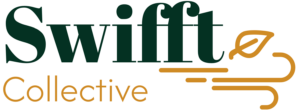Calls
FAQs
Browse through the following FAQs to find answers to commonly raised questions about the Islands of Hope Seed Funding Call:
Eligibility Criteria
What is the profile of an academic researcher eligible to be involved in the project, and what roles can they take on?
For this project, the profile of an eligible academic researcher includes researchers with different academic statuses. The lead academic researcher must hold a permanent position (ZAP status) at VUB or ULB. In addition to the lead, other academic researchers, such as PhD candidates and PostDocs, can also be involved in the project. These individuals may contribute to the project in various roles but cannot serve as the lead academic researcher.
Can a VUB professor include a ULB professor in their project team?
Yes, a VUB professor can collaborate with a ULB professor. Either one must be designated as the lead academic researcher.
Can VUB include academics from other Belgian universities (e.g., Ghent, KU Leuven, UCL) in the team?
Yes, professors from other Belgian universities can be listed as “other academic researchers” in section 1.2. There is no maximum limit on the number of “other academic researchers.”
To what extent do team members need to be affiliated with VUB or the ULB?
The lead academic researcher must be from VUB or ULB with a ZAP-platform and a PKC number. Other academic researchers do not need to meet this requirement.
Team Composition
How can transdisciplinarity be demonstrated with only one researcher?
Transdisciplinarity is achieved through the integration of academic and non-academic knowledge. As long as there is at least one academic and one non-academic actor, the project qualifies as transdisciplinary. You are, however, very much encouraged to build a strong transdisciplinary team by including different disciplines in your project proposal.
Does the full team need to be finalized at the application stage?
The lead academic researcher and the co-lead non-academic partner must be identified before the application deadline (April 30). Additional team members can be included later as external partners.
How should non-academic actors be classified in the application form?
Non-academic actors, like NGOs, CSOs, private organizations, or government institutions, can participate in a project proposal either as “non-academic team members” or “external partners.” As non-academic team members (Section 1.2), they are co-applicants and play an active role from the start of the project. There can be more than one such member. On the other hand, external partners (Section 3.2) are organizations that support the project, often joining later, and help expand the network of actors involved.
Budget and Funding Distribution
Is there guidance on the ideal distribution of funds between academic and non-academic partners?
There is no specific guidance. The call supports participatory action research and encourages collaboration across disciplines and sectors to make a positive societal impact. The budget can be used to pay staff costs and other type of costs; both for academic and non-academic partners.
Application and Selection Process
What does 'shortlisted candidates will pitch their ideas in June' mean?
Shortlisted candidates will have 5–10 minutes to present their projects to a transdisciplinary jury panel on the 23rd of June 2025. More details will be provided once the application deadline has passed.
Is there a required start date for the projects?
Projects should start by summer 2025, with September/October being the latest recommended start time.
Must the proposal be written in English?
Yes, all forms must be submitted in English to ensure accurate evaluation by the jury.
Can the same organization submit multiple proposals?
Yes, an organization can submit multiple project proposals.
Are academics allowed to submit more than one project proposal?
Yes, academics are allowed to submit more than one project proposal, including in collaboration with different organizations.
International Collaboration
Can an international research partner be included in the consortium?
Yes, as an “other academic researcher” in section 1.2, provided the lead academic researcher is from VUB or ULB. However, all funded activities must take place in Belgium.
Can the project have an international scope?
The primary focus must be on Belgium, but international external partners can be involved. However, they will not receive funding for activities outside Belgium.
Finding Academic Partners
How can I find a suitable VUB or ULB researcher to collaborate with?
It is the responsibility of non-academic applicants to find an academic partner. Events like the Open House facilitate networking opportunities with academic and non-academic actors. However, the ULB’s inventory of research units, the interdisciplinary research platform of the House of Sustainable Transitions, the Citizen Science Contact Point and the Science Shop can be a good starting points to find academic partners.
Can I contact participants from the Open House event to collaborate on a proposal?
Yes, networking is encouraged to build strong project teams.
Proposal Requirements
To what extent must the proposal contain academic references?
A separate section for academic references is not required, but references can be included within the text if they help strengthen the proposal.
Who will evaluate the proposals?
The jury consists of 9 members: 4 academic members from SWIFFT (ULB and VUB) and 4 non-academic members from various sectors, led by a chair.
In case you still have questions that have not been answered in this section, you can contact us at the following e-mail address: house@vub.be.
